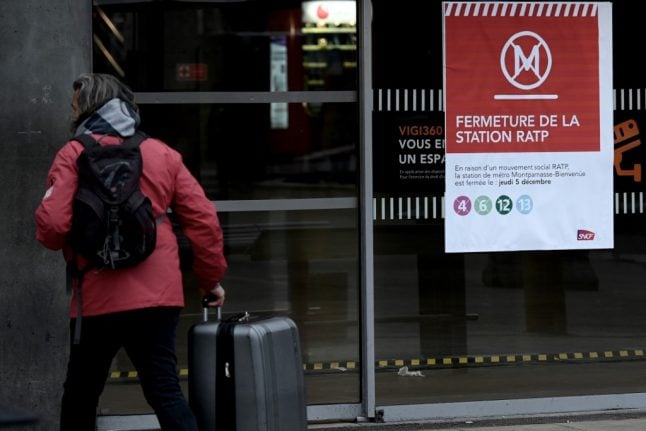Workers on the Paris Metro and the national SNCF rail network first walked out on December 5th in protest over the government's plans for pension reform.
Since then, services on the public transport networks have been severely delayed, particularly during the early days of the strike when thousands of Parisians were forced to walk or cycle long distances to get to work.
But on Saturday the Unsa-RATP union said it would be suspending strike action from Monday.
Unsa is the largest union for employees of the Paris public transport provider RATP, so although other unions are continuing the strike, the return of Unsa members is likely to see services return to close to a normal level.

RATP will release full details for Monday services at 5pm on Sunday.
French workers are not paid during strikes, so during long lasting protests more people return to work as time goes on and they can no longer take the financial hit.
This had been happening in Paris in recent days, with several Metro, tram and RER lines running a normal service on Thursday and Friday.
Services on the SNCF national rail network had also been less disrupted in recent days, with around 85 percent of lines running as normal.
In its statement, Unsa-RATP said it remained opposed to the plans of French president Emmanuel Macron for sweeping reforms to the country's pension system.
A particular cause of anger to rail workers was the proposal to scrap the 'special regimes' that allow them to retire earlier than the legal retirement age of 62.
Unsa RATP said its members “remained determined to continue their battle against the unjust reforms”' but will be focusing on “other actions” from Monday.
The government last weekend offered a potentially significant concession to unions when Prime Minister Edouard Philippe said he would be willing to discuss dropping the idea of a 'pivot age' of 64, which would give workers access to a fuller pension than those who retire at 62.
Talks are still ongoing but the more moderate unions like the CFDT and Unsa say they are prepared to accept most aspects of the reforms.
Hardline unions including the CGT – which is heavily represented among SNCF rail workers – still say only a complete withdrawal of the reforms will end their strike action. In recent days the union has staged other actions including a blockade of seven French ports and blockages at France's major oil refineries.
On Sunday all Paris tram services will be running as normal, along with eight Metro lines. The remaining lines will be running for most of the day, but with fewer trains than normal.
[Mouvement Social]⚠️Pour le dimanche 19 janvier, la #RATP prévoit un trafic en très nette amélioration sur l’ensemble de son réseau par rapport aux dimanches précédents. Les prévisions ⬇️ et sur https://t.co/OElUNYGYky pic.twitter.com/NP62hgMPuE
— RATP Group (@RATPgroup) January 18, 2020



 Please whitelist us to continue reading.
Please whitelist us to continue reading.
Member comments